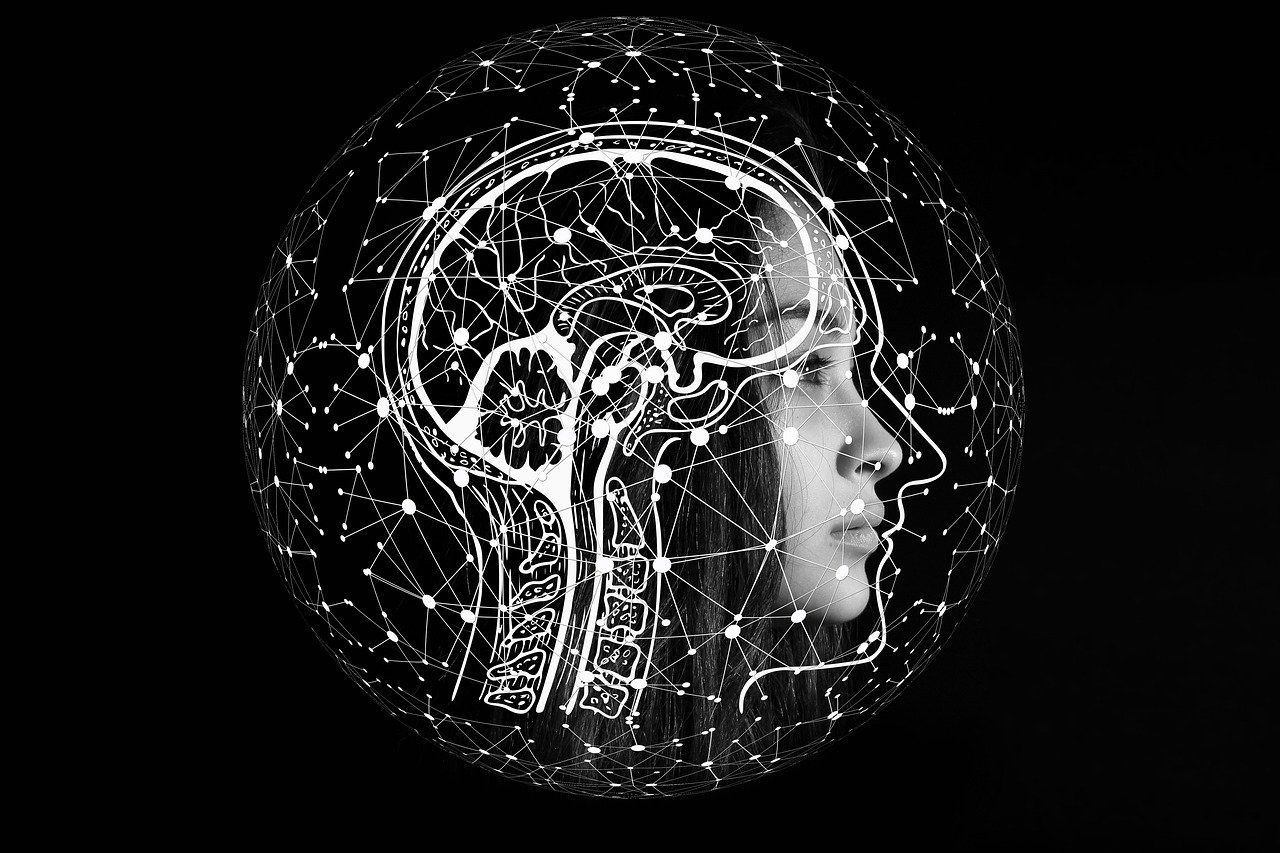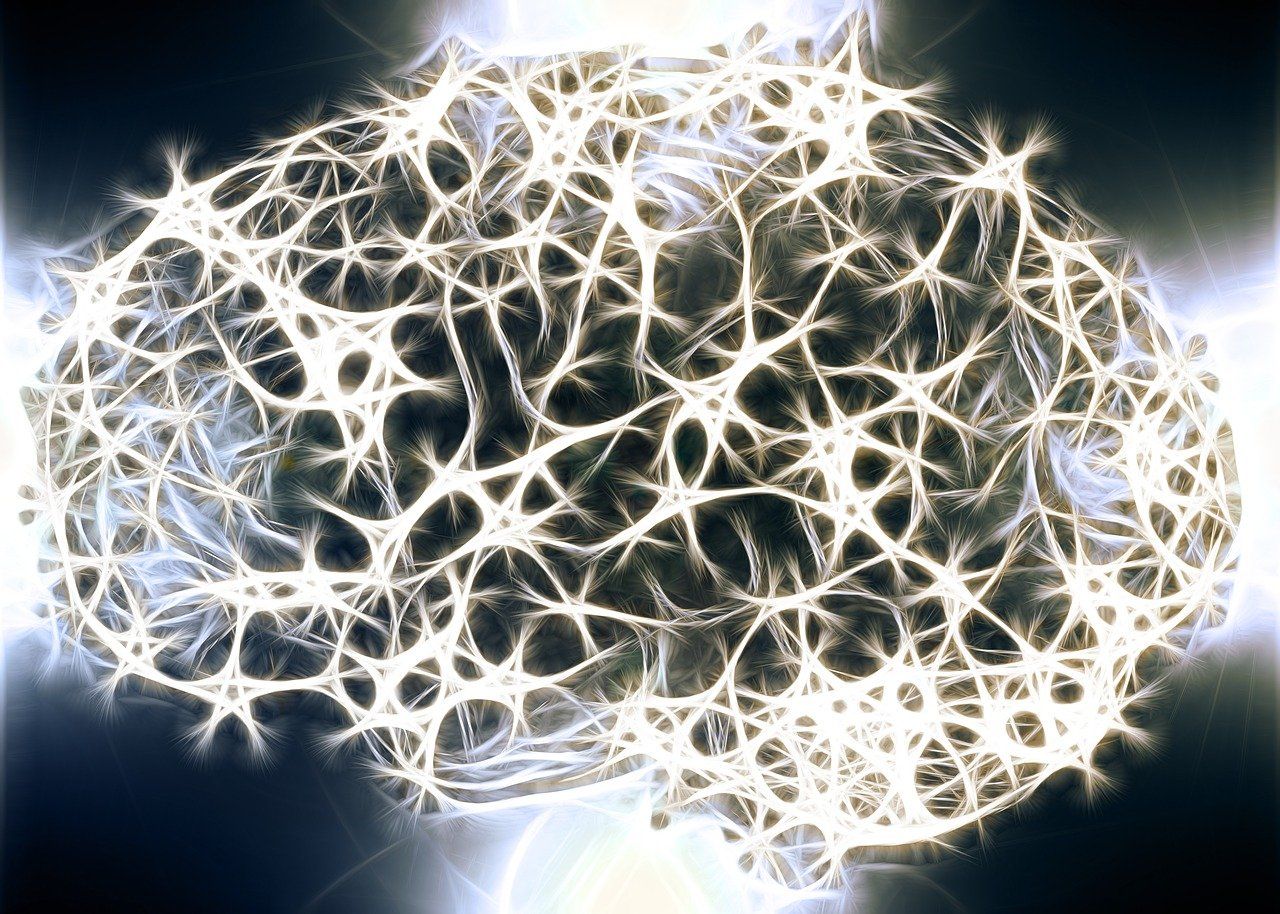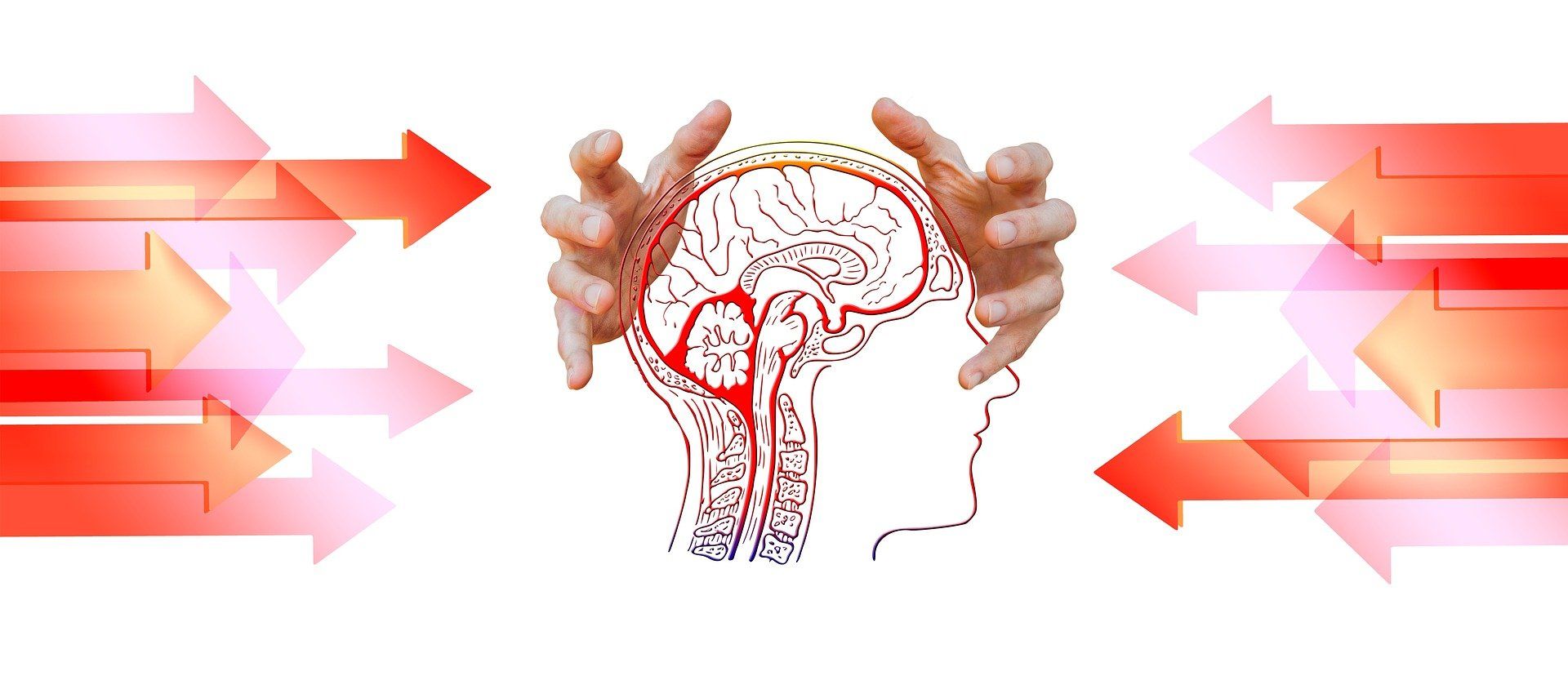Neuroplasticity: The Science Of Changing Your Brain
Neuro - The cells in the brain
Plasticity - The ability to shape, remould and restructure the network of brain cells.
Scientists now know that the brain can change itself. It is a plastic, living organ that can change its own structure and function. The aim of this article is to explore this revolutionary discovery, known as neuroplasticity; considered one of the most important developments in modern science of our understanding of the brain.
Imagine how different your life would be if could easily increase your memory, creativity, concentration and learning ability!
BASIC BRAIN TERMS
Neurons - Brain cells
Neural network - Jungle of brain cells clustered together
Synapse - The junction point between neutrons
Neurotransmitters - Chemical messengers for neurons
Did you know y our brain can physically change?
Yep, that’s right...
Neuroplasticity is an umbrella term referring to the ability of your brain to restructure itself, both physically and functionally, throughout your life due to your:
•Environment
•Experiences
•Learning
•Behavior
•Thinking
•Emotions
From the time the brain begins to develop as a child and until the day we die, the connections between the cells in our brain reorganise in response to our changing needs and environment.
“The brain is more plastic-like than it is hard wired—it can mould, shape and modify its structure given the right instructions.”
SOURCE - Evolve your brain
Shifting Paradigms
“The old model of the brain's inability to regenerate new nerve cells is no longer valid. It has been proven that certain areas in the brain can generate fresh cells.” ~ Neuroscience
THREE BRAIN MYTHS
•After a certain age the brain is hardwired to a set of programs that make up your personality.
•We cannot change our personality traits.
•We cannot train our brains.
These myths are very limiting and outdated perceptions!
Need-To-Know Brain Facts
• Genes do not determine the fate of our brains . Thanks to lifelong neuroplasticity, our lifestyles are as important as our genes—if not more—in how our brains grow and our minds evolve.
• Physical exercise and increased fitness promote brain functioning through a variety of mechanisms, including increased brain volume, blood supply, and growth hormone levels.
• Routine activities do not challenge the brain . Keeping up the challenge requires going to the next level of difficulty, or trying something new.
• Brain training can work; evidence-based brain training includes some forms of meditation, cognitive therapy, cognitive training, and bio/neurofeedback.
• Chronic stress reduces and can inhibit neurogenesis (growth/development of brain cells). Memory and general mental flexibility are impaired by chronic stress.
• There is increasing evidence that meditation and biofeedback can successfully teach users to self-regulate physiological stress responses.
What is biofeedback?
“It is a technique to learn how to control internal functions normally outside of conscious control. You learn this by using sensitive instruments that measure and display physical or mental processes—making you aware of things that you can’t easily feel or detect on your own”
SOURCE - sharpbrains.com
SOURCE - Evolve your brain
How The Brain Really Works
By understanding the mechanisms of the brain, we will understand both its capacities and its limitations for thought and emotions.
Our brains changes every day as we experience new things (real or imagined). Focused attention can rewire the brain — be aware of your thoughts as they shape your reality.
#KEY POINTS
•Our neural networks rewire when new information is processed.
•The brain will physically restructure itself when our beliefs and perceptions change.
•The brain noticeably changes shape with attention, meditation, exercise, diet, and habits of life.
Synaptic Pruning
"Synapses are the connections between neurons that transmit chemical messages. When we learn new information and skills, synapses get stronger. We even generate new ones, a process called neurogenesis. During vital periods of cognitive development, we shed old synapses to make room for higher quality connections that can support more complex mental function. This neural spring cleaning is called synaptic pruning."
Thoughts and other stimuli can “rewire” the brain by strengthening useful synaptic pathways and weakening less used ones.
FACTORS TO TAKE INTO CONSIDERATION
• Learning new information creates new connections in the brain. When you encounter something, unfamiliar or even difficult, go for it. Use this opportunity to learn something new.
• When you fully focus your attention on new information or activities, neuroplasticity is heightened.
• Have new experiences that are stimulating and heartfelt; focus in on the finer details, objects, conversation, colours; be aware of the smells and sounds.
Did you know - you can impact the physiology of your brain by changing your behaviours, attitudes or perceptions?
A common phrase in the field of neuroscience that gets used to describe this is “neurons that fire together wire together”.
“So if learning forges new connections in our brain, then remembering is enriching and sustaining the new connections in our brain.” ~ Evole your brain
“It’s the repetition of affirmations that lead to belief. And once that belief becomes a deep conviction, things begin to happen.” ~ Muhammed Ali
#IMPORTANT POINT
Learning new information creates new connections in the brain. However, if you don't remember or repeat the information/activity, the brain will eventually eliminate, or “prune,” the connecting cells that formed the pathway.
PRACTICE MAKES PERFECT
Repeating information or activity will activate the neural network—groups of neurons that fire together—creating stronger connections.
Remembering important points or aspects of new information will help strengthen neural networks. Reflecting back on the information or activity you have just learnt will help sustain long-term relationships between neutrons.
Mentally rehearsing activities you have just learnt, whether it be a new movement in sports/martial arts or a new dance move will fire up circuitry systems in your brain, as if you were performing the movement in real life. Major sporting clubs have visual coaches that put athletes through mental rehearsal as a part of their training.
#QUICK RECAP
Your thoughts, emotions and perception of the environment re-wire the brain — shaping your reality.
Ohh, don’t forget...
Your perception of yourself - how you view yourself; makes a huge difference on your neurobiology.
So be kind to yourself …
KEY POINTS ON BEING KIND TO YOURSELF
Perception - Shift your point of view from negative to positive.
#Quick Tip
If you find this hard to do, then seriously put yourself in the shoes of people in third world countries that are suffering for the bare minimum before you start complaining about first world problems.
Affirmations - Repeat positive affirmations that area true to your life every night with emotional conviction. Meditate on the gratitude and appreciation you have for your truth.
Mirror - when you look at yourself in the mirror, just smile and say something nice: “You’re beautiful!” or “ You’re going to change the world!” or “My greatest gift is the happiness I offer people!” or “I love you!”…
Yes, self-love is a very powerful inhibitor of biochemical changes in the body!
Meditate - every night or every morning (or both); give thanks — express love for everything that brings you happiness.
Meditation increases the thickness and strength of the frontal cortex of the brain; ageing decreases the size of the frontal cortex. Studies have shown that meditators experience less of this decrease in the frontal cortex. In other words, the gray matter in their brain upholds its thickness, resulting in a healthier brain.
"According to a new study led by Harvard researchers at Massachusetts General Hospital (MGH), meditating for just eight weeks has been shown to alter the brain’s gray matter, which may be at least part of the reason why practitioners experience significant improvements in memory, sense of self, empathy, and stress." - havard.edu
Summary So Far
Our brain can change
in response to the experiences and emotions that we feed it. Neuroplasticity
means that we can structurally change how our brain works by changing our
environment, thoughts, and actions. As we incorporate new behaviours
and thinking patterns, the brain adapts to these changes, forming new synaptic
connections. This is why starting a new habit (like exercise) is difficult but
as the brain adapts, it becomes easier and easier until it becomes second
nature!
SOURCE
-
meditation-research.org
SOURCE -
Evolve your brain
SOURCE
-
The Rewired Brain
SOURCE
-
universalclass.com
Apply This Knowledge To Your Life
So you have learnt the basic science of neuroplasticity but now lets take this information to the NEXT LEVEL.
I want to give you infoformation that applies to your life, not just some technical jargon that makes up a good article.
QUESTION:
What happens if I change the way I think, act and feel?
ANSWER:
“You will change your personality!! Your personality creates your personal reality!! Your personality is made up of the way you think, the way you act, and the way you feel.” ~ Joe Dispenza
Here are some basic principles you need to know in order to create a new you:
Every thought you have produces a chemical in your brain that signals the body to feel exactly the way you been thinking.
Feelings generate an electromagnetic pulse that signals the brain to think exactly then way that you’re feeling.
Thinking the same way every single day only produces the same feedback loops that become redundant over time.
This becomes a vicious cycle:
-We become victims to your thoughts
-We become victims of your environments
-We become victims to our emotional patterns
Sure you want to change and apply this new science, but first, you need to understand how your subconscious mind operates or else it will be an uphill battle.CONSCIOUS VS SUBCONSCIOUS MIND
The information below is extracted from the teachings of Bruce Lipton
The mind controls:
•Life
•Biology
•Nervous system
•Behaviour
The mind is divided into two parts:
1) Conscious mind:
•Personal identify
•Source
•Spirit
•Who you are
•Creativity
•Your wishes
•Your desires
•What you want from your life - answers that manifest comes from the creativity of your conscious mind
2) Subconscious mind:
•Recording device - playback device
•Records life experiences
•Memories
•We can push a “button, ” and play back the tape and it responds to those experiences
The subconscious mind is like a recording device with a set of programs that make up your personality.
So how does it work? (simple explanation)
Remember when you learnt how to drive a car?
The first time , you were fully focused and “aware” in the moment, little fearful but attentive to the task at hand. and then the second time it becomes easy and mor 'natural' … Fifth time… After you got your license… How about now? you can just jump in the car, and you don't even have to think about it it seems 'automatic' to be able to drive.
Reason: The Sub-Conscious mind is doing the driving for you, while your conscious mind time travels into the past, and future, an automatic program (driving) is played back.
This is a basic example of how automatic programs rule your life; this applies to everything!!
What other programs does this apply to?
• Anger
• Pain
• Sadness
• Frustration
• Violence
• Guilt
• Resentment
• Jealousy
To name a few…
The Same principle applies to all the emotional states (programs) listed above. You have learnt these behaviours so well that now it’s an automatic program — a very reactive state — that when triggered, you become unconscious and the program plays out.
Please take a moment to digest this info...
#LETS PUT IT TOGETHER
I. New experiences make new nerve cells — connections.
II. We can call these connections memories.
III. Memories are chemical blueprints —Love or Fear (Stress).
IV. Repeating the same experiences (same emotions).
V. Strengthens neural networks (Fire together, Wire together).
VI. This is called learning — Mastery over what we repeat.
SO IF YOU REPEAT:
- Anger
- Hate
- Sadness
- Violence
- Self-pity/sabotage/doubt
- Anxiety
- Any negative emotions.
You will become a master at it!
PUNCH LINE: You no longer have to think about it… because you are it !!
The architecture of our brain is designed to reflect everything we experience; every bit of information coming in from our senses is being hardwired into what we call a memory.
We have forgotten what it feels like to have a panoramic perspective on life; forgetting how it feels to live in total harmony and joy.
SOURCE -
Evolve your brain
SOURCE -
The Rewired Brain
SOURCE -
brucelipton.com
SOURCE -
calmdownmind.com
SOURCE -
drjoedispenza.com
The Effects Of Stress On Neuroplasticity
Living in a fast-paced society promotes stress and anxiety due to the stressful demands of daily life — which are
are all being stitched away into the recess of our gray matter as memories.
There is a very likely probability that we have programmed our brain to be in a highly aroused state of stress. Running the risk that this imbalanced state can become our status quo.
There are times where you may feel okay, but it doesn't take long for the stressful energy to resurface. This can take over our bodies, consume our thoughts, and bring us our of alignment with the present moment.
Other factors that impact your level of stress:
•Diet
•Lifestyle choices
•Emotional diet
•Sleeping patterns
ALL YOU NEED TO KNOW IS THAT OVERACTIVE STRESS HORMONES RUN HAVOC ON YOUR BODY’S NATURAL ORDER OF BALANCE!
Chronic stress decreases the number of stem cells that mature into neurons and might provide an explanation for how chronic stress also affects learning, memory, and health.
Common side effects of a body full of stress or a brain that is functioning under stressful programming are:
•Excessive thinking
•Unhealthy sleeping patterns
•Waking up and being unable to get back to sleep
•Easily frustrated
•Easily irritated
•Inability to control anger or negative emotions
•Lack of cognitive control
•Unstable moods
•Lack of energy
•Unstable energy
•Rarely feel joy or happiness
•Inability to get the joy out of simple pleasures in life
•Rarely present
•Consumed by thoughts
•Constant dwelling on, or rehearsing negative or worst case scenarios
“Stress has not only been proven to kill neurons and neural connections, but it actually prevents the formation of new neurons and neural connections. ”
The unconscious programs that are ruling your life, that hold you back from being your potential, can be “pruned” away.
In meditation, you shift your attention into a state of awareness — the act of observation.
Once you become the conscious observer, you are no longer your thoughts/programs, so they slowly start to lose their charge over you.
Non-identification is a faster and more effective way to reprogram your brain.
“Neurons that don't fire together, don't wire together”
#PLEASE NOTE
You don't have to meditate to reprogram your brain.
Self-awareness - paying attention to your programs/thoughts will allow the charge to weaken.
HOW?
By being self aware through non-identification you become the witness to your programming as opposed to succumbing to the programming. which will in turn prune away the useless connections you don't want.
However the stronger the charge, the stronger the connection ; so it will take repetition, practice of non-identification to weaken the charge.
CHARGE -
The stronger the program the stronger the charge, the reaction of the individual will determine the strength of the charge/program. For example people that have an anger issue will have a program that is strongly charged “anger”.
A weaker charge would be someone that feels anger but doesn't allow the anger to take over their mind and body.
Ultimately the more in control you are over your emotions the less vulnerable you are to programs taking over your conscious awareness.
Meditation heightens your self-awareness so you can be more alert to unconscious programs that no longer serve you.
Metacognition - awareness and understanding of one's own thought processes.
“Now you can modify your behaviours to do a better job in life.” ~ Joe Dispenza
CLICK HERE FOR OUR FREE GUIDED MEDITATIONS
We all have programs that have been hardwired into our cerebral cortex (mind) that serve us no purpose, whether it be from childhood — early development years — or unconscious mental rehearsal of experiences.
How many of us have spent countless hours, days and even longer, dwelling upon stressful emotions that have only taught our bodies to memorise such responses?
KEY INGREDIENTS
1. Have the will to develop your self-awareness.
2. Only pay attention to the thoughts you want to manifest.
3. Behave in ways that represent the highest ideal of yourself.
4. Only memorise the emotions that bring you love.
FEW KEY POINTS TO REMEMBER
• Anyone at any age can develop new habits or skills.
• Our abilities are affected by stress.
• We can work out our brains like we work out our bodies. The more effort we expend, the better our results will be.
• Our brains are made up of over 100 billion neurons which are capable of generating somewhere around 60,000 thoughts per day.
• A neural network is made out of tiny nerve cells that branch out and connect to other nerve cells forming a network.
• Our memories store a chemical blueprints (emotions) of past experiences; these chemicals are defined by our reaction or response to a particular experience (love or fear).
• As neural connections develop & strengthen, the grey matter in our brain physically changes as well.
Imagine how it would feel like to live in total balance and harmony, to have the inner freedom to experience an abundance of joy through the simple things in life. Imagine how it will feel to get that spark of natural enthusiasm back into your life.
Bring out a better version of yourself by listening to our wide selection of Guided Meditations today!
SOURCE -
Evolve your brain
SOURCE -
The Rewired Brain
SOURCE -
drjoedispenza.com
SOURCE -
The Brain That Changes Itself
Get A FREE
Guided Meditation Series
with Chad Foreman


















